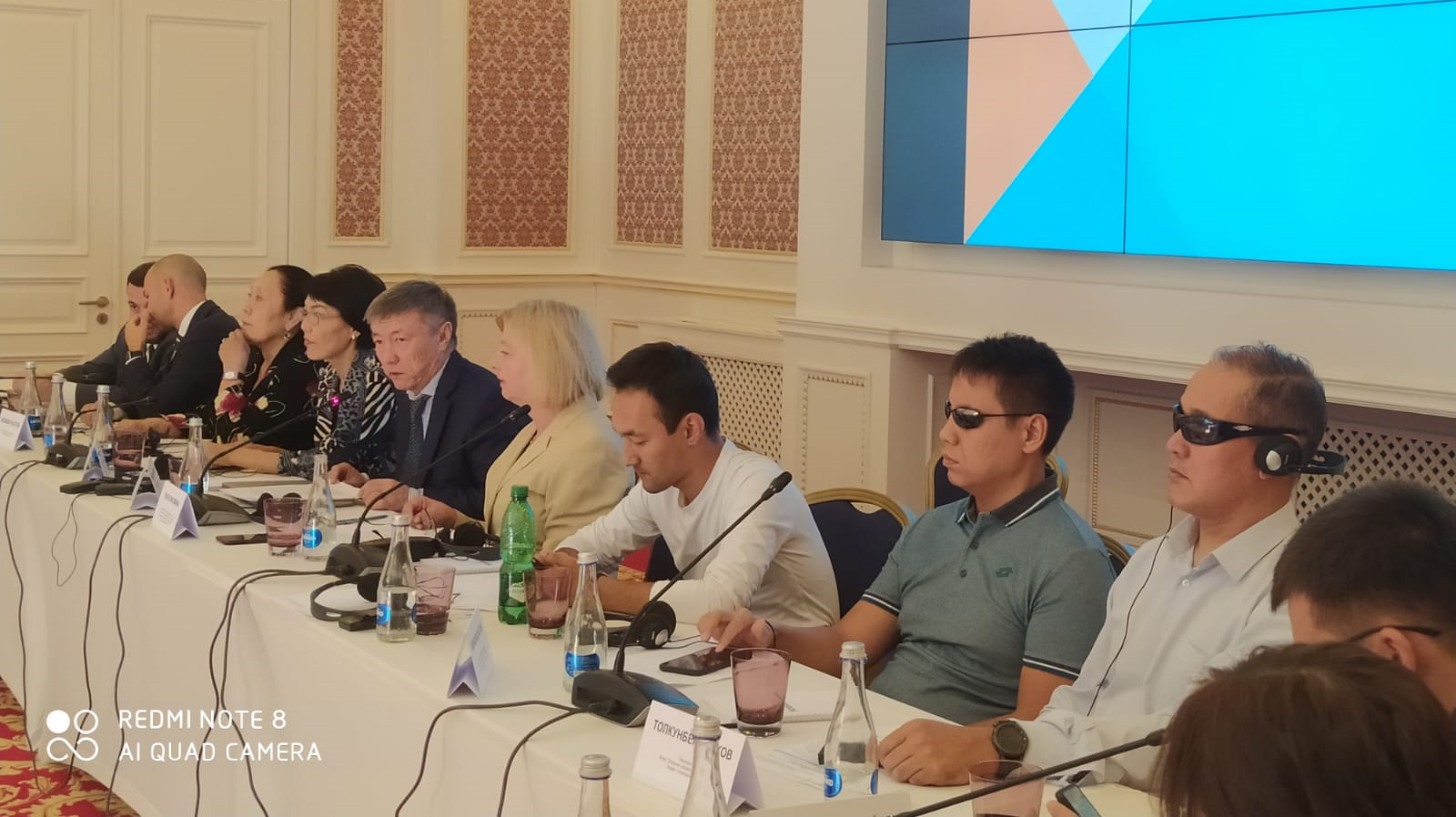On the 23rd September 2022, in Bishkek, Kyrgyzstan, the ILO project “Enhancing disability-inclusiveness of social protection system in Kyrgyzstan”, funded by the European Union, conducted a public discussion on “Quota systems for employment of persons with disabilities: advantages, disadvantages and affirmative actions based on international experience”.
The purpose of this event was to initiate multilateral discussion around the key features of the quota system for the employment of persons with disabilities, and the challenges for its implementation in Kyrgyzstan, by considering international experience from France and Spain (including affirmative actions) and the elaboration of possible policy and practical recommendations.
Around 50 representatives of national stakeholders participated in this public debate, including the Parliament of the Kyrgyz Republic (Jogorku Kenesh); the Ministry of Labour, Social Security and Migration of the Kyrgyz Republic; the Ministry of Economy and Commerce of the Kyrgyz Republic; Ministry of Finance of the Kyrgyz Republic; employer’s organization, worker’s organizations: the Federation of Trade Unions of Kyrgyzstan; organizations for persons with disabilities; international development partners and persons who have disabilities themselves.
During the sessions, the participants discussed different issues related to the quota system for the employment of persons with disabilities in Kyrgyzstan, national challenges, gaps in the quota system, as well as international experiences in line with international labour standards. The panel was moderated by Mr Esteban Trömel, ILO Senior Disability Specialist, the cases studies were presented by Mr Bruce Roch, “Adecco Group”, for France and by Ms Sabina Lobato, “ONCE Foundation”, for Spain.
According to Mr Dastan Bekeshev, Deputy Chairman of the Jogorku Kenesh Committee of the Kyrgyz Republic on Budget, Economic and Fiscal Policy, “The quota system does not work in Kyrgyzstan. We need to take the initiative to change the labour legislation in order to comply with the realities of our economy and propose to reduce the quota percentage and make an alternative to these quotas. For example, if an entrepreneur does not want to hire persons with disabilities at all, then they could contribute to a special account for creating jobs or adapting existing jobs to the needs of people with disabilities”. Also, Mr Raimonds Vingris, Head of the European Union Delegation’s Political Department in the Kyrgyz Republic, mentioned that the “Protection of human rights and vulnerable groups in society are the original values of the EU. Among policy the quota system for employment for persons with disabilities can be useful for enforcing the liability of both public and private sectors”.
As a result, the participants were able to discuss national challenges, gaps and practical steps for the best implementation of the quota system for persons with disabilities in Kyrgyzstan, so that it could improve their access to social protection and decent work. The main recommendations of this public discussion will be submitted to the national working group for adoption during legislative review on disability issues in Kyrgyzstan.
Read more about this ILO/EU project in Kyrgyzstan: here

